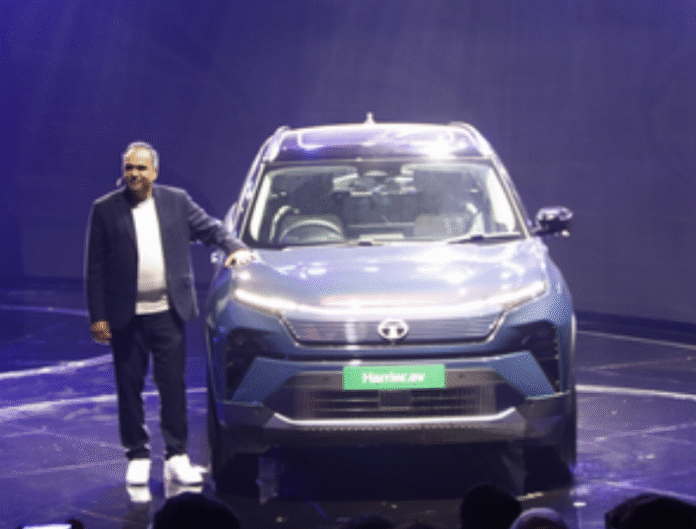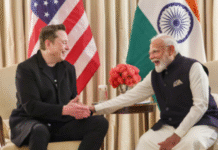Mumbai— Tata Motors reported a sharp 51% year-on-year decline in consolidated net profit for the fourth quarter of FY25, even as its overall revenue held steady and its Jaguar Land Rover (JLR) unit delivered modest growth.
The company posted a net profit of Rs 8,470 crore for the January–March quarter, down from Rs 17,407 crore in the same period last year, according to its regulatory filing on Tuesday.
Despite the profit slump, Tata Motors’ consolidated revenue from operations edged up 0.4% to Rs 1,19,503 crore, compared to Rs 1,19,033 crore in Q4 of the previous fiscal.
Total expenses for the quarter declined to Rs 1,09,056 crore, from Rs 1,11,136 crore a year earlier, helping cushion the financial impact. Total income rose slightly to Rs 1,21,012 crore from Rs 1,20,431 crore.
Operating profit (EBITDA) for the quarter came in at Rs 16,700 crore, marking a 4.1% decline. However, earnings before interest and tax (EBIT) rose by Rs 1,000 crore year-over-year to Rs 11,500 crore.
The company also declared a final dividend of Rs 6 per equity share for FY25, subject to shareholder approval at the upcoming annual general meeting. If approved, the dividend will be paid by or before June 24.
One of the few bright spots was the performance of Jaguar Land Rover. The luxury vehicle brand saw a 1.1% rise in sales volumes, driven by continued demand for its high-margin SUVs in North America and Europe. JLR’s revenue for the quarter grew 2.4% despite a slowdown in China, which tempered overall growth.
Tata Motors’ domestic business, including passenger vehicles, commercial trucks, and buses, saw weaker performance compared to JLR’s international gains.
Commenting on the results, Group CFO PB Balaji said Tata Motors achieved its highest-ever annual revenue and profit before tax (excluding exceptional items) in FY25. He also noted that the company’s automotive business is now debt-free on a consolidated basis, helping lower interest expenses.
Looking ahead, the company acknowledged global uncertainties—ranging from tariffs to geopolitical tensions—that could impact the auto sector. Nevertheless, it expects continued resilience in both premium luxury and domestic markets. (Source: IANS)







